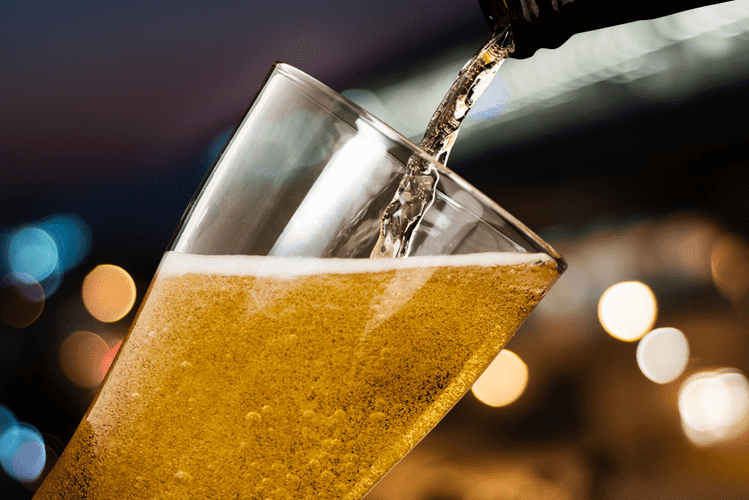With proper support, the brain demonstrates a remarkable ability to recover cognitive functions diminished by alcoholism. Two main things that happen when you ditch the bottle are the restoration of your cognitive function and your brain’s neuroplasticity. Alcohol withdrawal can be serious and potentially life-threatening, especially for individuals with a history of heavy and prolonged alcohol consumption. Because alcohol affects these critical brain regions and their functions, heavy drinking can have a wide range of negative effects on your brain.
- With a strong foundation in clinical practice and a nurturing approach to care, Marshe focuses on building trust with every patient she sees.
- It also helps control our cognitive abilities, such as learning and memory.
- It is crucial to seek professional help and engage in activities that promote brain health and overall well-being.
- Amy Shin is an advocate for equitable healthcare, with expertise in Medicare, Medicaid, dual-eligible, long-term care, and commercial health care.
- So, if you’re struggling with alcohol brain fog or any type of cognitive impairment, make sure to spend some time in nature every day.
Medication and Detox Programs
- Incorporating cognitive exercises and behavioral therapies into recovery plans significantly bolsters cognitive recovery.
- Neurotransmitters once depleted by alcohol can be replenished, leading to gradual improvements in cognitive functions such as memory and decision-making.
- However, the lingering brain fog that follows is more than just a prolonged hangover; it reflects deeper disruptions in brain chemistry that can affect mental clarity for days.
- If you or someone you know is struggling with alcohol addiction or experiencing brain fog symptoms, seeking help and support from a qualified healthcare professional is essential.
- Brain fog feels like the room inside your head is not clean and requires a deep refresher.
In more extreme cases, excessive alcohol intake can trigger blackouts, resulting in episodes of amnesia that leave individuals confused and possibly causing damage to the brain. As the body gradually eliminates alcohol and its byproducts, individuals may experience a resurgence in cognitive and emotional capabilities. Alcohol detox not only alleviates the physical dependence on alcohol but also lays the foundation for improved mental health and emotional stability.

Why a gradual taper is recommended for benzodiazepine detox
Foods rich in omega-3s, B vitamins, and antioxidants help heal the brain. When you work with us, our knowledgeable medical team can create tailored treatment programs to fit your needs. Feeling brain fog or a lack of mental clarity after drinking alcohol isn’t a great feeling. Your head seems to be in the cloud after binge drinking with your siblings. This morning you’ve lost your phone, keys, and charger all within an hour. Getting rid of brain fog after drinking alcohol can help you focus on recovery.

Get regular exercise
In addition, exercise can also help improve your sleep quality, which as we know by now, is essential in preventing brain fog. There are a few common symptoms that people with brain fog often experience. To avoid this, make sure to manage your stress brain fog after drinking levels and find healthy ways to cope with stress. This may include exercise, meditation, breathing exercises, having a full body massage, and other healthy relaxation techniques you may come across. Cortisol is a stress hormone that helps you deal with short-term stressors. However, when it’s constantly released, it can lead to long-term problems like brain fog and cognitive impairment.
Addiction Treatment
Sam Wald is an experienced healthcare operations leader, specializing in value-based care for seniors. He has led teams and networks that deliver highly coordinate care to some of our most vulnerable community members. He is passionate about building systems and partnerships that improve outcomes and reduce the cost of care for https://www.syntacticspink.com/inpatient-vs-outpatient-treatment-recovery-options-3/ patients.

However, with time, proper care, and lifestyle adjustments, it is possible to recover mental clarity and cognitive function. Brain fog after quitting drinking alcohol is a common experience for many individuals. If you or someone you know is struggling with alcohol addiction or experiencing brain fog symptoms, seeking help and support from a qualified healthcare professional is essential. Alcohol withdrawal can cause a range of symptoms, including brain fog, which can manifest as difficulty concentrating, confusion, memory problems, and slow reaction times. The duration of alcohol-related brain fog can vary depending on several factors, such as the severity of alcohol abuse, the duration of alcohol consumption, and overall health status. For those with mild to moderate alcohol use disorder, brain fog may resolve within a few days to weeks after quitting drinking.
Take Care Of Your Physical Health
So when you’re managing stress or anything to do with your mood, you can be sure that dopamine is involved. It even helps to protect your gastrointestinal lining and works with your immune system – it’s everywhere! That’s why it’s so important to do what you can to stay healthy and make sure your body is making enough of it and using it efficiently. Relying on caffeine Alcohol Use Disorder throughout the day will only contribute to more issues; drinking caffeinated products and more is the underlying reason for your chronic tiredness and fatigue.

